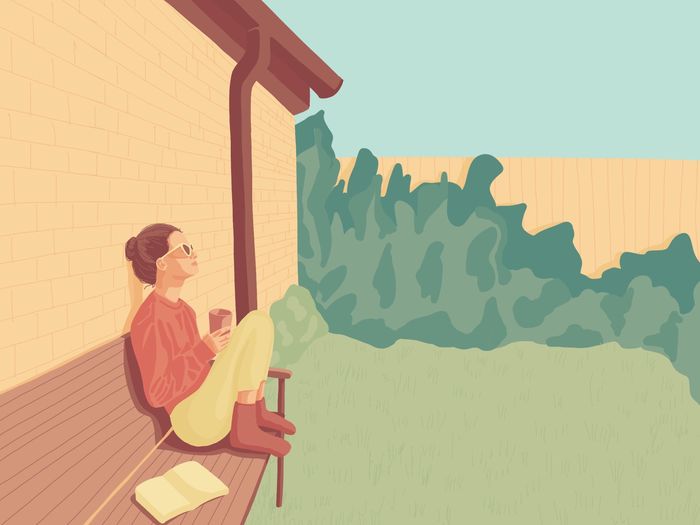What they don’t tell you about mental health
In the first of her new column exploring issues too often unspoken and unacknowledged, Elia Chitwa discusses her experiences of mental health, its treatment and its persistent stigmatisation
Content Note: This article contains a detailed discussion of mental health issues and their treatment
‘Split’, ‘Psycho’, ‘Joker’. What these movies all have in common is that they try to portray mental illness. However, they also share a similar storyline, your typical ‘madman’ who eventually goes around killing everyone. In cinema, it’s common to find mental ill health confined to the same stereotypes; for example, a psychotic serial killer, a hysterical female, or the ‘attention seeker’. There are so many portrayals in the media, but very few that actually show what living with mental illness is like. Obviously, everyone will have different experiences, but you’ll find that more people have been denied care from the NHS than have escaped from a psychiatric ward and murdered someone.
Chances are you’ve heard the claim that psychotic people, or better yet people with psychosis, are all violent and dangerous. Though in some cases that may be true, it’s not as common as the Daily Mail might have you believe. Like the rest of the population, most people with mental illness will never be violent and are more likely witness or be subject to violence. Actually, you might find people who’ve had experience with mental ill health to be more understanding and caring, obviously with some exceptions, as they might know what it’s like to struggle and feel invalidated.
"I know too many people that didn’t ask for help because they felt they didn’t deserve it."
Invalidation is something that a lot of people with mental ill health experience, and this can sometimes stem from stigma. Although there has been improvement in this area with increasing awareness and understanding of mental illness, there is still a long way to. A search on the internet can reveal some harsh opinions of people like me who have diagnoses of things like Borderline Personality Disorder. When I initially started researching it, I was told that I was manipulative and attention seeking. I was told that I was unlovable and inherently bad. Even some mental health professionals continue to repeat these views. The stigma that people with mental ill health face, often reinforced in media portrayals, can lead to self-stigmatisation. I know too many people that didn’t ask for help because they felt they didn’t deserve it.
However, even when people do reach out for help, they might be met with nothing. From friends and family, we might be told to ‘just smile’ which, more often than not, isn’t helpful. When we go to professionals to get help, we might be told our condition is not severe enough or, perhaps that the waiting list could be over a year even if it is. If you haven’t accessed any mental health services, you could think that they are easy to access or will solve all problems, but this isn’t the case. When I first got referred to mental health services, my GP sent me to A&E because she knew the waiting list was far too long for the help I urgently needed. Even after my urgent referral, I waited weeks to receive any help other than being given medication. Then, by the time I was given help, I was too ill to appreciate it and ended up on a psychiatric ward.
There are a lot of misconceptions about psychiatric wards, the first being that they’re ‘easy’ to get into. Honestly, they’re probably harder to get into that Cambridge. Doctors will avoid sending you at any cost either because there aren’t enough beds or there aren’t enough staff. Even if you are admitted to a ward, it isn’t really about helping you get ‘better’, they’re more about getting you ‘stable’ or, in my case, boring you into submission. Funnily enough, I think there are quite a few similarities with Colleges. You might have a pool table in the corner, or the Wii connected to the TV. Most people are glued to their phones and there are arty people making art. You have to eat at certain times of the day and if you want a snack you’d have to go to Sainsbury’s, subject to conditions. Psychiatric wards are full of mentally ill people, but they don’t all resemble the scary places shown on TV.
I’ve only scratched the surface of things you might not have been told about mental health but the best thing to do if you’re unsure is to ask. If your friend isn’t coping, you could ask what they find helpful, or talk to someone else about how to support your friend. If you’re struggling remember that you can ask someone for help, be it your GP, your college nurse, counsellor or a helpline.
The most important thing I was never told is that we all have mental health and it’s okay to struggle. It’s okay not to feel like everything is perfect all of the time. It’s okay to get help when you’re struggling, and the current state of your mental health doesn’t have to define you.
 Comment / Cambridge’s tourism risks commodifying students18 April 2025
Comment / Cambridge’s tourism risks commodifying students18 April 2025 News / Cambridge researchers build tool to predict cancer treatment success19 April 2025
News / Cambridge researchers build tool to predict cancer treatment success19 April 2025 News / Varsity ChatGPT survey17 April 2025
News / Varsity ChatGPT survey17 April 2025 News / Cambridge researchers find ‘strongest evidence yet’ of life on distant exoplanet18 April 2025
News / Cambridge researchers find ‘strongest evidence yet’ of life on distant exoplanet18 April 2025 News / Greenwich House occupiers miss deadline to respond to University legal action15 April 2025
News / Greenwich House occupiers miss deadline to respond to University legal action15 April 2025






